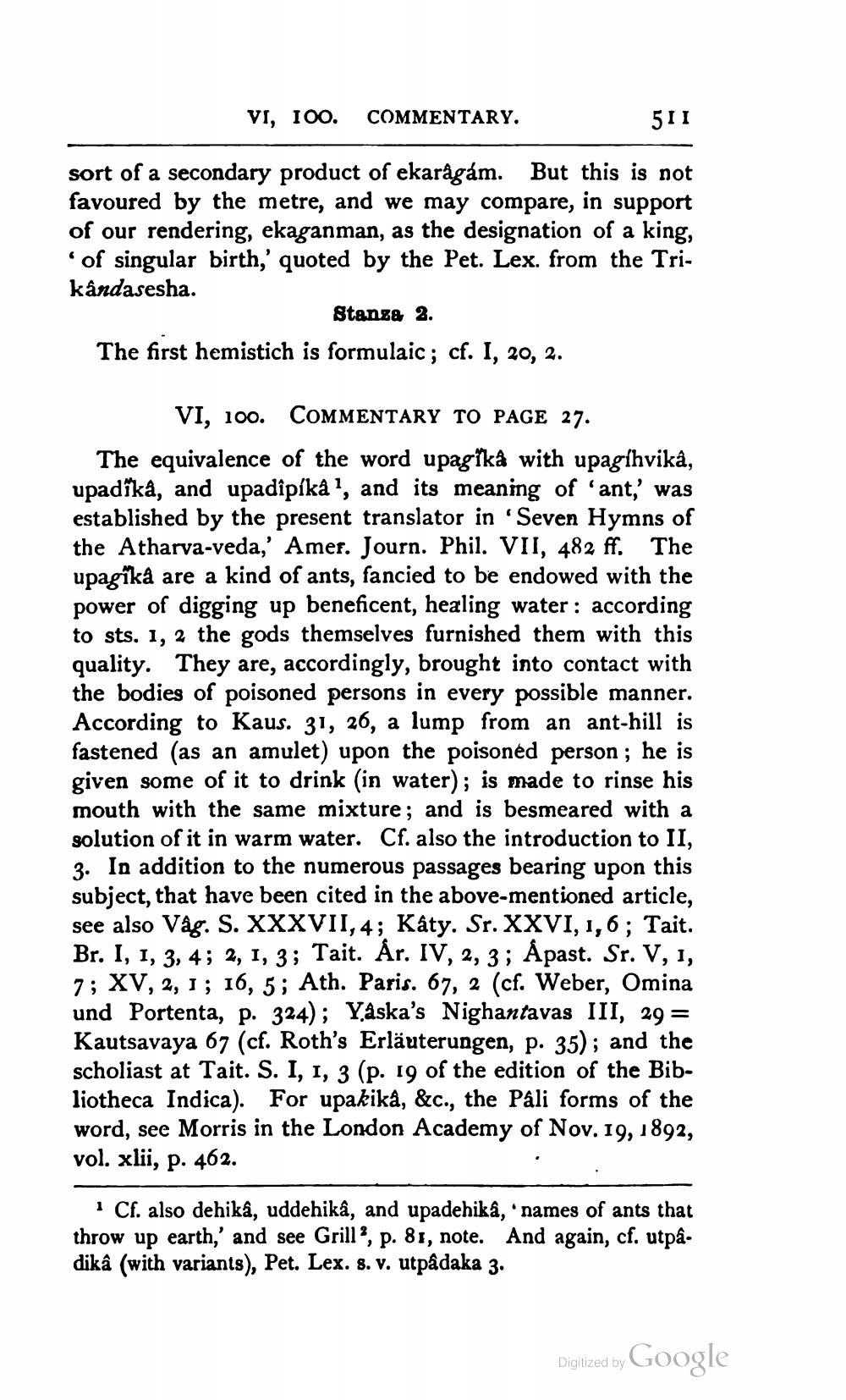________________
VI, 100. COMMENTARY.
511
sort of a secondary product of ekarágám. But this is not favoured by the metre, and we may compare, in support of our rendering, ekaganman, as the designation of a king,
of singular birth,' quoted by the Pet. Lex. from the Trikândasesha.
Stanza 2. The first hemistich is formulaic; cf. I, 20, 2.
VI, 100. COMMENTARY TO PAGE 27. The equivalence of the word upagskå with upagshvikâ, upadiká, and upadipíka, and its meaning of 'ant,' was established by the present translator in 'Seven Hymns of the Atharva-veda,' Amer. Journ. Phil. VII, 482 ff. The upagīkå are a kind of ants, fancied to be endowed with the power of digging up beneficent, healing water : according to sts. 1, 2 the gods themselves furnished them with this quality. They are, accordingly, brought into contact with the bodies of poisoned persons in every possible manner. According to Kaus. 31, 26, a lump from an ant-hill is fastened (as an amulet) upon the poisoned person ; he is given some of it to drink (in water); is made to rinse his mouth with the same mixture; and is besmeared with a solution of it in warm water. Cf. also the introduction to II, 3. In addition to the numerous passages bearing upon this subject, that have been cited in the above-mentioned article, see also Våg. S. XXXVII, 4; Kâty. Sr. XXVI, 1,6 ; Tait. Br. I, 1, 3, 4; 2, 1, 3; Tait. År. IV, 2, 3 ; Åpast. Sr. V, 1, 7; XV, 2, 1; 16, 5; Ath. Paris. 67, 2 (cf. Weber, Omina und Portenta, p. 324); Yaska's Nighantavas III, 29 = Kautsavaya 67 (cf. Roth's Erläuterungen, p. 35); and the scholiast at Tait. S. I, 1, 3 (p. 19 of the edition of the Bibliotheca Indica). For upakika, &c., the Páli forms of the word, see Morris in the London Academy of Nov. 19, 1892, vol. xlii, p. 462.
i Cf. also dehikâ, uddehikâ, and upadehika, names of ants that throw up earth,' and see Grill", p. 81, note. And again, cf. utpå. dikâ (with variants), Pet. Lex. 8. v. utpadaka 3.
Digized by Google




